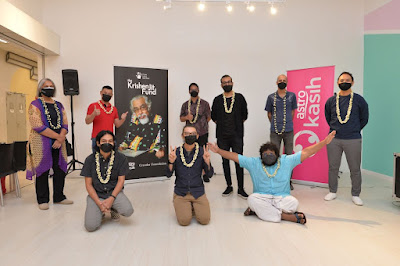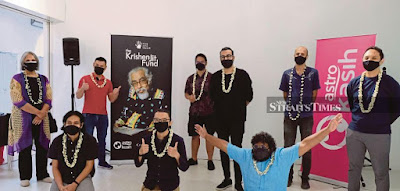He's also one of the 11 beneficiaries of this year’s Krishen Jit Fund.
23 December 2021 - 10:37am
Supported by Astro and the Creador Foundation, the fund — of which Chong is one of 11 beneficiaries this year — is inspired by the late theatre director’s pioneering work in celebrating original Malaysian creativity (All photos: Anthony Alexander Chong)
It was while setting up the interview with deaf activist Dr Anthony Alexander Chong that it occurred how much we take for granted, and how mortifyingly unaware we are about the daily minutiae that can be difficult for people who are hearing-impaired. Chong is exceptionally gracious about it all, but the effect of that initial exchange is permanently seared in our collective consciousness: While we may acknowledge that the world can be a difficult place for the differently-abled, we really have no idea what some of their day-to-day challenges are.
In fact, Chong’s own activism work would not have been further highlighted if not for the Krishen Jit Fund, which is aimed at providing deserving arts practitioners with monetary aid to pursue projects in the arts. Supported by Astro and the Creador Foundation, the fund — of which Chong is one of 11 beneficiaries this year — is inspired by the late theatre director’s pioneering work in celebrating original Malaysian creativity in as varied and alternative ways as possible.





